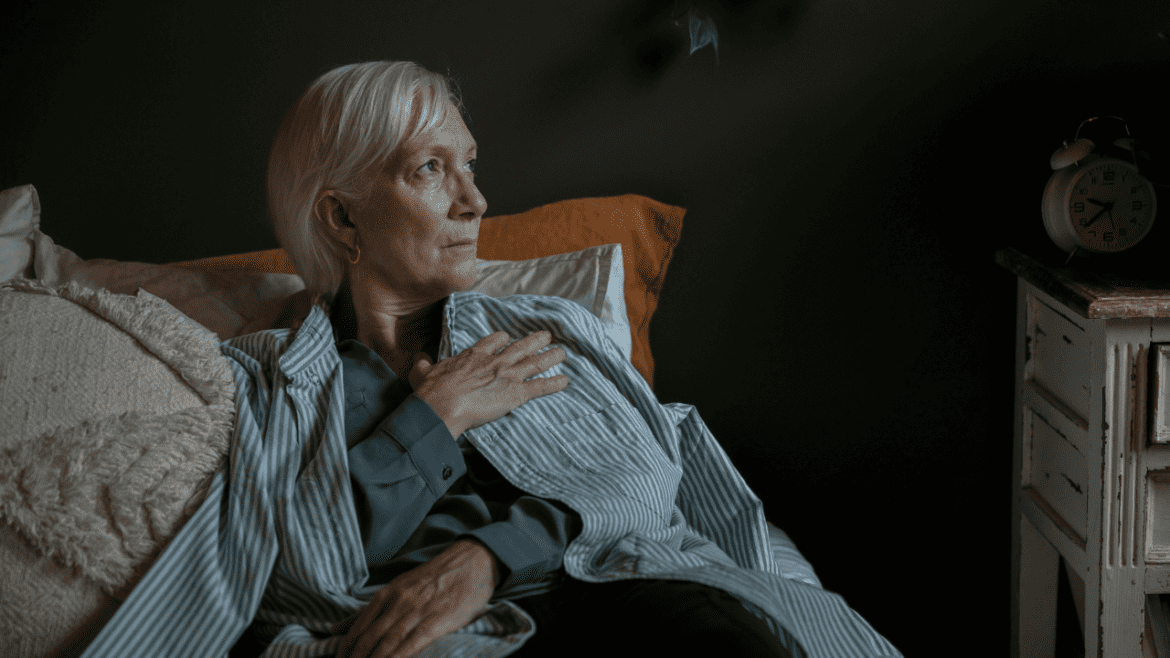Did you know that Leading Edge Senior Care has a Dementia Support Group? We meet monthly in Mesa. For more details <click here>
What Is The Correlation Of Anxiety & Dementia In Seniors?
Anxiety and dementia are two common mental health conditions that impact many seniors. Both can create significant challenges, not just for the individuals affected but also for their families and caregivers. Understanding the correlation between anxiety and dementia is essential for providing the proper care and support. This connection goes beyond just co-occurrence; anxiety can affect the onset, progression, and severity of dementia, leading to heightened emotional and cognitive difficulties.
How Anxiety Manifests in Seniors with Dementia
Anxiety often presents itself in various ways among seniors. Those with dementia, particularly in its early stages, may feel heightened levels of anxiety. This is largely because they are becoming more aware of their cognitive decline. They might experience confusion, frustration, and even fear over their inability to recall simple information or perform daily tasks.
For seniors with dementia, anxiety can exacerbate their symptoms, causing them to feel more disoriented. As dementia progresses, the ability to process information becomes increasingly impaired, which often results in heightened anxiety. They may frequently ask the same questions, become easily agitated, or withdraw from social situations entirely. These behavioral shifts are not just a byproduct of memory loss but are deeply intertwined with feelings of anxiety.
The Role of Anxiety in Cognitive Decline
Many studies suggest that anxiety does more than accompany dementia—it may play a role in accelerating cognitive decline. Stress hormones, like cortisol, rise when someone is anxious, which can negatively affect brain function over time. Seniors who already struggle with memory and cognitive function may find that their anxiety leads to quicker deterioration. This makes it essential to recognize and manage anxiety early.
Research has demonstrated that seniors with chronic anxiety are more likely to develop dementia. The persistent stress that comes with high anxiety levels wears down the brain’s capacity to function effectively. While anxiety might not directly cause dementia, it creates a stressful environment that pushes the brain toward faster degeneration.
How to Identify Anxiety in Seniors with Dementia
Recognizing anxiety in seniors with dementia is not always straightforward. It can manifest through physical symptoms like restlessness, fatigue, or difficulty sleeping. It can also present itself as excessive worry, irritability, or a general sense of unease. In some cases, seniors may not verbally express their anxiety, making it even harder to detect.
Caregivers often face the challenge of distinguishing between anxiety and the typical symptoms of dementia. For instance, repetitive behaviors or agitation might be mistaken for confusion when in reality, they are outward signs of anxiety. Early intervention is crucial in these cases, as untreated anxiety can exacerbate dementia-related issues.
Managing Anxiety in Seniors with Dementia
The good news is that there are ways to manage anxiety effectively, even in seniors with dementia. One of the most important strategies is creating a calm and stable environment. Routine plays a significant role in helping seniors feel secure, especially those with dementia. Predictability can help reduce the anxiety that often arises from uncertainty or confusion.
Medication can sometimes be prescribed to help manage anxiety, but non-pharmacological interventions are often just as effective, if not more so. Techniques like mindfulness, breathing exercises, or light physical activity can help soothe anxious feelings. It’s also important to address the root causes of anxiety, which could include loneliness, isolation, or fear of memory loss. Engaging seniors in social activities can reduce their feelings of anxiety while simultaneously helping to slow cognitive decline.
The Importance of Early Detection and Intervention
Detecting anxiety early in seniors with dementia allows for better management of both conditions. When anxiety is left untreated, it can worsen the symptoms of dementia, accelerating mental decline. By identifying anxiety early, caregivers and healthcare providers can implement strategies that improve the quality of life for seniors.
Routine check-ins, structured environments, and personalized care plans are all essential tools in managing anxiety in seniors with dementia. In many cases, treating anxiety can help slow the progression of dementia, making early intervention critical.
Supporting Seniors Through the Correlation
The correlation between anxiety and dementia in seniors is complex, but it is clear that anxiety can make dementia symptoms worse. Therefore, providing emotional and practical support is necessary. Families, caregivers, and healthcare providers must work together to create an environment that minimizes anxiety while fostering cognitive function. This might include creating calming routines, engaging in memory-boosting activities, or simply offering a compassionate ear when seniors feel anxious about their mental health.
Understanding this connection between anxiety and dementia helps pave the way for better care, early intervention, and improved quality of life for seniors struggling with both conditions. With the right approach, it’s possible to alleviate anxiety and help manage dementia in a way that supports long-term well-being.

